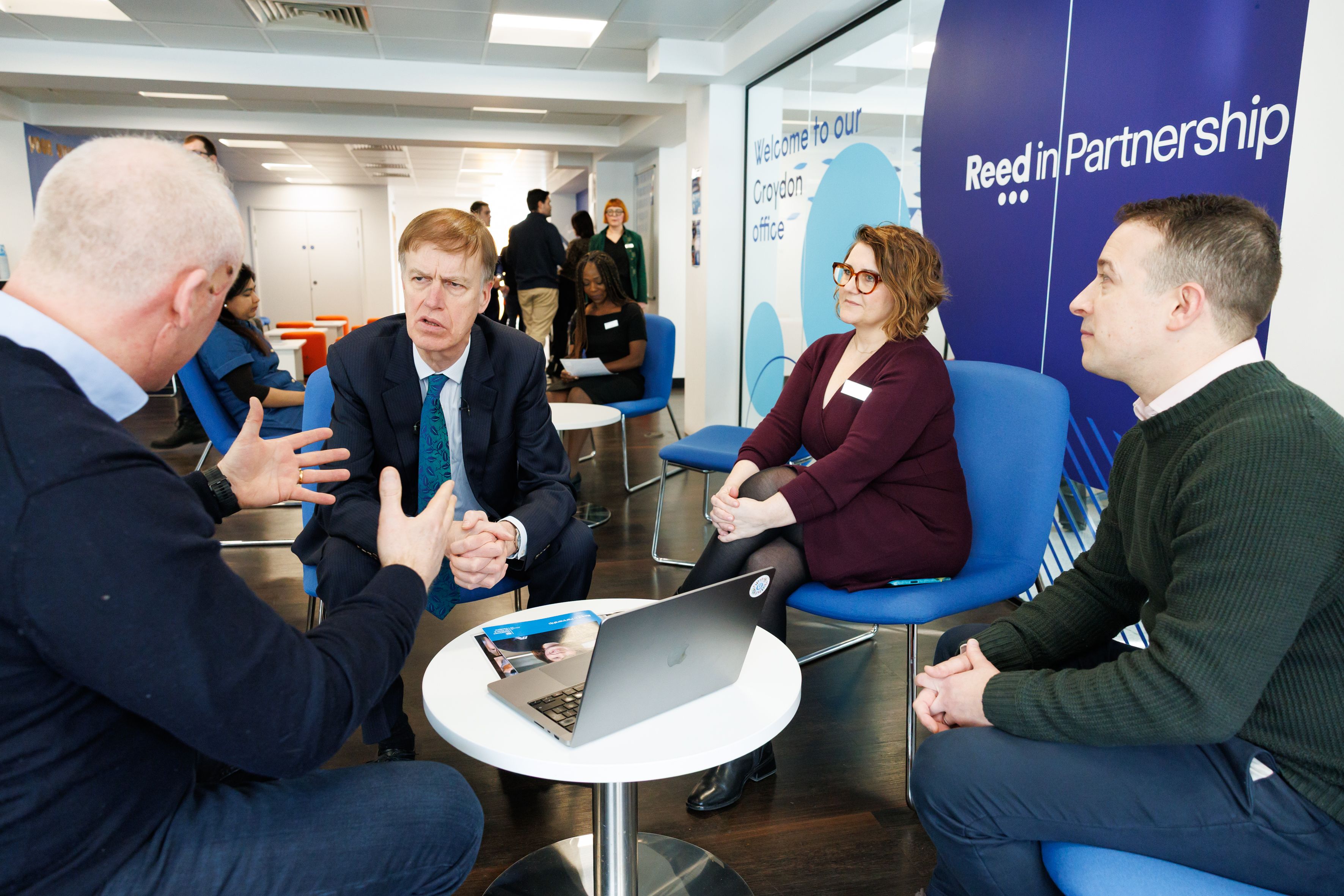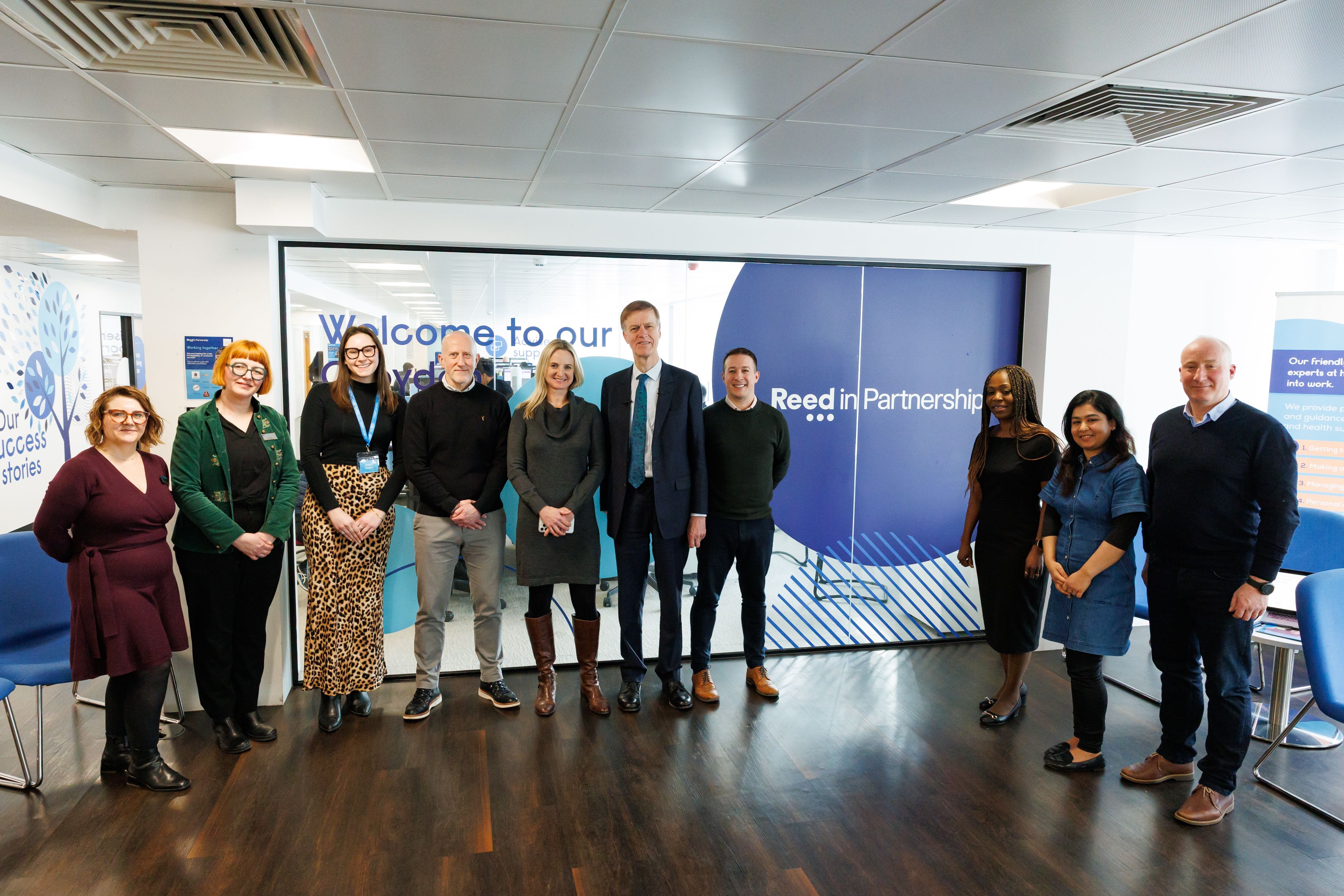"A blueprint for what we must achieve across the country."
21 Feb 2025
Following DWP Minister Sir Stephen Timms’s visit to our Croydon office this week, Employability Director, Nick Morgan, looks at how we are working with local partners to deliver our services in South London
We were delighted to welcome the Minister for Social Security and Disability, Sir Stephen Timms MP, into our Croydon office earlier this week. As the Government considers the next steps for its Get Britain Working programme, Sir Stephen took the opportunity to get insight into our employability provision in South London across our Better Working Futures and Work Routes programmes - our names for the DWP's Work and Health Programme Core and Pioneer services. Both programmes offer specialist, personalised support to participants with health conditions and disabilities as well as the economically inactive. In an article in the Times following his visit, Sir Stephen had the following to say about what he saw:
"I saw first-hand the life-changing support being offered to disabled people and those with health conditions living in south London. It’s giving them the confidence and skills they need to thrive, and the stories I heard are proof that when we provide real support, people can overcome barriers and achieve their ambitions. This kind of support is a blueprint for what we must achieve across the country."
What we are achieving in South London is built on a foundation stone of strong partnership working with our commissioners South London Partnership (SLP), which comprises the London boroughs of Croydon, Kingston upon Thames, Merton, Richmond upon Thames and Sutton.

Both programmes – Better Working Futures from 2018 and Work Routes from 2023 – are funded by a grant from the Department of Work and Pensions to SLP, which then commissioned the support for its residents. Croydon Council led the work to commission the service on behalf of the five London boroughs.
SLP set an expectation of strong partnership working from the very start, wanting to see a hyper-local approach to reaching residents experiencing exclusion from the labour market, with local reporting on engagement and outcomes. Integration and collaboration with other local provision was seen as critical to the services by the commissioner.
This was reinforced by the London-wide No Wrong Door campaign, which focused on supporting Londoners disproportionately affected by the pandemic, including disabled Londoners, women, refugees, young people and older Londoners. This initiative funded four integration hubs to boost coordination and partnership working across the capital. The aim is to connect people to the right support at the right time for them, whatever their starting point or what service they access first. The South London integration hub has seen services and providers come together to engage local employers in promoting inclusive employment, for example.
Over the past few years, Reed in Partnership has developed mutual and increasingly deep working relationships, not just with the commissioner but with a diverse range of anchor employers, community and voluntary sector organisations, specialist support services and local future education colleges.

Everything we do is designed with an eye to supporting the participant to sustain the progress they have made in finding or getting closer to employment. If we can fully align with local community, health, skills and family support then we can both support better outcomes for the individual and help them to sustain the life changes that they have made.
A programme of integration has been developed to ensure that each element of support is fully aligned to the wider social and economic goals for the SLP area. On skills, Reed in Partnership’s internal Skills Academy matches participant job goals and needs to the priorities in the Local Skills Improvement Plan and collaborates with the GLA’s construction and social care academies, with recent joint sessions being held with the social care academy to encourage participants to explore social care careers, for example.
Close collaboration with the local Integrated Care System (ICS) includes supporting participants to benefit from using the ICS’s getUbetter app to help people with musculoskeletal conditions to self-manage, helping individuals to overcome health barriers to work, at the same time as supporting the wider population health goals of the local health system.
Sir Stephen said that the support offered to participants in South London represents "a blueprint for what we must achieve across the country." It is partnership working which is the hallmark of our services in the region. This is what ensures we can deliver the best possible support to our participants. At Reed in Partnership, our name explains our approach to how we operate. We are open and ambitious about the future potential for working with partners in regions across the country to help more people into sustainable employment.
